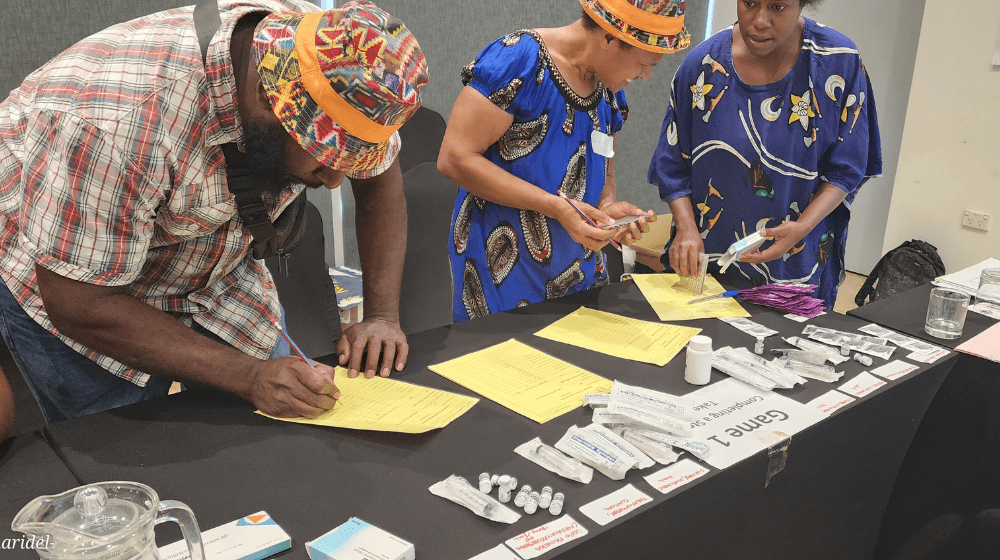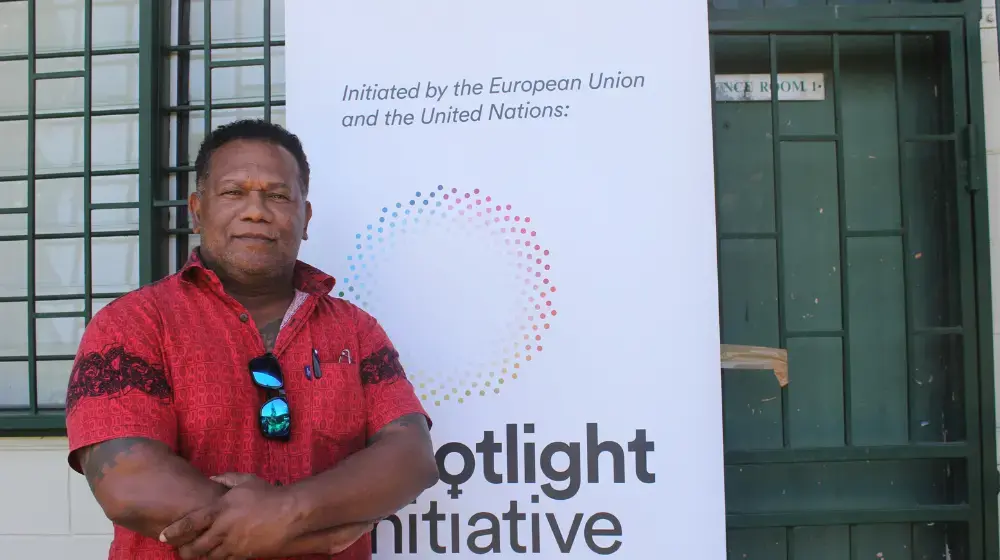"My health facility is only accessible by river, so we struggle when transporting drugs. That is why I really appreciate this training,” expresses nursing officer Ernest Wayacram, from Haewena Health Center in the North Fly District, Western Province. “This improves my skills to order and manage drugs properly to avoid unnecessary shortages at my facility.”
Mr. Ernest Wayacram is one of 22 health workers in Western Province who have successfully completed the Reproductive Health Commodities Supply Chain - Level 1 training in Kiunga. The week-long training, facilitated by the United Nations Population Fund Country Office, focused on medicine supply chain processes and inventory management, with the aim of ensuring reproductive health medicines and medical equipment are available when and where they are needed.
Nine health facilities in the province were surveyed during the nationwide Health Facility Survey, conducted by UNFPA in partnership with the National Department of Health in 2022. The results exposed gaps in the availability of essential medicines, including life-saving medicines for women during childbirth, and noted that adequate ordering and distribution of medical supplies and equipment as a major challenge in all health facilities.
North Fly District Administrator Mr. Greg Isau, during the opening of the training, expressed the challenges faced in the province when it comes to drug supply and how important this training is to the health workers.
“The main challenge in our health facilities is medicine distribution, management, and storage,” he said. “Logistics is a nightmare for the province, and this greatly affects the supply of medicines.”
Western Province is the largest province, by area, in Papua New Guinea. The Fly-Strickland River system features over 1,200 kms of waterways, with many riverside communities accessible only by boat. During the dry season, when some tributaries to the Fly River become too dry to travel by boat, but not dry enough for travel by car, communities can become entirely inaccessible.
Given these challenges, health workers have to consider the volume of stock required to serve the community for those months when facilities are inaccessible and the expiration dates of stock. This balance is important to ensure that the facility has enough stock, while ensuring that the facility does not order too much stock that will expire before it can be used.
“I know that most health workers here are Officers in Charge at their respective health facilities and will fully grasp the essence of this training to see how we can best manage in our health facilities,” said Mr. Isau.
“The Provincial Administration and Government is keen to work with UNFPA in this training and other potential trainings in the future.”
UNFPA has maintained a strong partnership with health workers in Western Province, having completed emergency obstetric and newborn care training for rural health workers and delivering non-pneumatic anti-shock garments to manage post-partum hemorrhage. Results from the Health Facilities Survey 2022 will be used to inform future interventions to strengthen sexual and reproductive health services in the province.




